Campus Internships
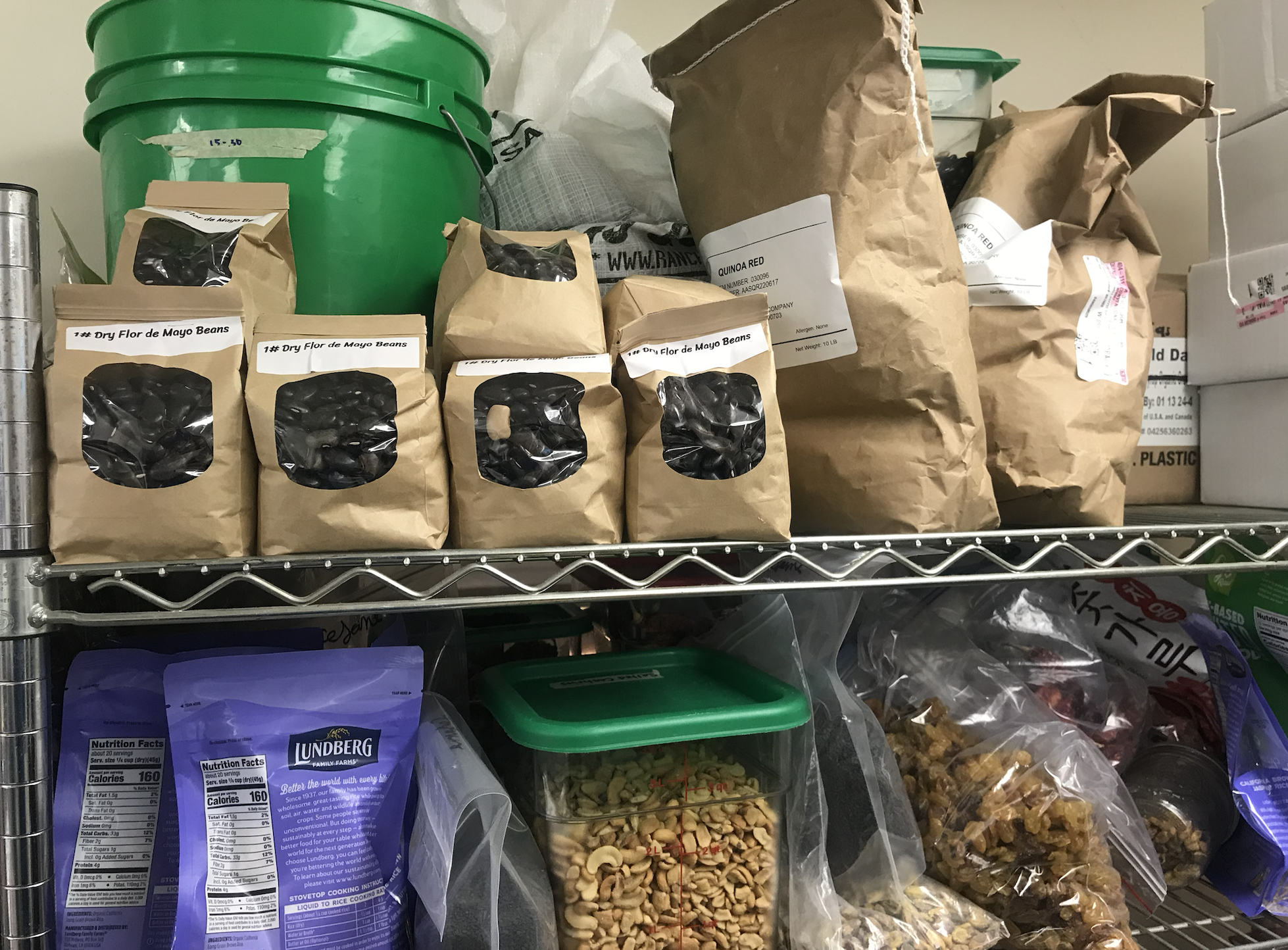
Contact: Ximena Moura, xmoura@ucsc.edu, Gabriela Anger, ganger@ucsc.edu, and Tim Galarneau
Internship activities with the Basic Needs and Cowell Coffee Shop include produce distribution through pop-up and pantries, and meal preparation, cooking and serving. The internship will include a cohort of approximately 15 interns, working as a team. There is a possibility that interested students might be invited to continue interning in future quarters. Each year, a number of paid student staff positions are available to alum of our internship program..Undergrad Research Assistant Position
Contact: Project Manager Layla Scott, lasscott@ucsc.edu
The UC Climate Action (SB1383) distribution model team is searching for an undergrad research assistant to work with Prof. Elliott Campbell and Prof. Yihsu Chen!The position is funded under a UC Climate Action Grant entitled "Rapid Decision Support to Manage Carbon-Nutrient-Water Trade-offs from California’s Landmark Methane Policy”. The undergraduate research assistant will be working with the UCSC compost research group under the supervision of Professors Eliott Campbell and Yihsu Chen as well as a Ph.D. student from Environmental Studies and to develop optimization tools to analyze the supply chain of the compost industry. We are looking for an undergraduate research assistant to help collect and analyze collected data on the transportation of food and organic waste. The qualified candidate is expected to possess basic research skills, familiar with Microsoft packages, and have some experience in managing databases. Knowledge of the Geographic Information System (GIS) and programming language will be a plus but not a requirement.
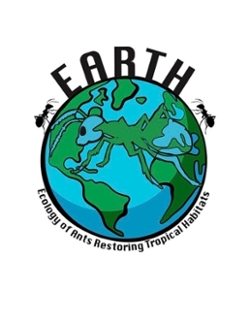
Listing also found in the Research tab.
Contact: Christina Blebea, cblebea@ucsc.edu
Do you want entomological lab work experience? Sign up to assist Graduate Student Christina Blebea with research on ant communities in tropical forest restoration! We’re discovering how ant communities change during restoration. Students will get hands-on experience with insects in the lab, learning how to mount, measure, and identify specimens. No experience is required..If interested, fill out an application here.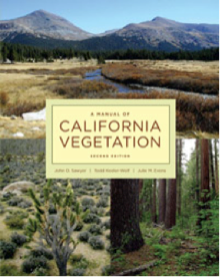
Native Plant Program
UC Santa Cruz Arboretum and Botanical Garden Native Plant Program
Listing also found under Conservation
Contact: Brett Hall brett@ucsc.edu & Jeremy Silberman jfsilber@ucsc.eduTo apply, send us an email and we will set up an interview.
You can also call Brett at (831) 212-4853
Winter quarter 2024 Interactive Ecology Field Study interns will work in the UC Santa Cruz Arboretum California Native Plant Program focusing on native plant communities in our local region and work in the California Conservation Gardens. Activities will include field trips and native plant horticultural work relevant to restoration and stewardship. Readings and writings will be assigned throughout the quarter.
The field trips will feature training in the identification of distinct native plant
communities (alliances) and the species associations they are composed of along with the environmental influences that drive them. Garden work will feature invasive weed control, planting, pruning and other tasks. Nursery work will feature propagation, seed work, transplanting and other tasks. Discussion and opportunities to ask questions will be a regular part of participation.UCSC Arboretum & Botanic Garden - Horticulturist Internship
Contact Jose Rodriguez, Gondwanan Horticulturist & Garden Steward, for more information and to set up an interview. (831) 502-2306; jrodri22@ucsc.edu
Gain hands-on experience working with staff horticulturists in a variety of gardens. Learn about the growth and care of plants from Australia, South Africa, Chile, and New Zealand. Your experiential learning will be supplemented by weekly readings and other assignments.
Work changes with the season and is project dependent, some skills you may acquire in the internship include:
-
Plant identification
-
Aesthetic and structural pruning
-
Landscape maintenance and Fine gardening
-
Arboriculture
-
Integrated Pest Management
-
Irrigation installation and maintenance
-
Battery operated tools, chainsaws, and small engine equipment use/maintenance
-
GIS mapping and Collection Management
-
Public Garden Management and Visitor Engagement
The internship is a 5 Unit upper or lower division ENVS course or 2 unit internship. 5 Units requires 12 hours per week (120 per quarter). 2 unit internships are 6 hours per week or 60 hours per quarter.-
Listing also found in the Conservation tab.
Contact: Katherine Whitney Hansen, kwhansen@ucsc.edu

As part of my PhD project I studied carnivore movement and behavior in the Okavango
Delta, Botswana; this project was sponsored by a larger organization called Botswana
Predator Conservation. Colleagues in Botswana discovered that in key locations many
carnivore species utilize “latrines”, and that these communication hotspots are an
incredible opportunity to study behavioral strategies of the carnivore guild in Sub-
Saharan Africa. The interguild interactions of carnivores at latrines have never been
described before in this part of the world, which makes this an exciting opportunity for
those interested in cutting edge wildlife research. I am seeking interns to help me
describe behavior of all carnivore species at latrines, with the intent of using this data to
investigate the importance of latrines for facilitating predator communication.On-campus intern positions are time-flexible and ideal for the intern who only has partial
days available between classes. These interns will develop ethograms used to classify
animal behaviors, label videos of carnivores with associated behavioral and species-
specific information, and help process data for subsequent analysis. These interns must
be computer-literate (able to learn to use Adobe Bridge and Microsoft Excel).I have collected a carnivore-only video dataset, which means the data has already been
clean and processed. All video-viewing will be of carnivores, and will require detailed
annotation of observed behaviors. Interns will work with me to create a user-friendly
ethogram for easier tagging and annotation. 2-unit or 5-unit interns appreciated!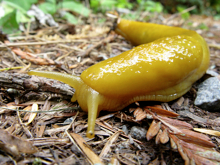
Various Internships
Contact: Alex Jones, asjones@ucsc.edu (831)459-4971
The UCSC Campus Natural Reserve provides numerous opportunities for internships and student projects involving plants, animals, forest ecology, restoration and stewardship. These offerrings include: FERP, Stewardship assistant, Phenology Litter Traps, Tomography, Herpatology, or even an opportunity to create your own internship.
Forest Ecology Research Plot (FERP) woody plant recensus--40 interns needed
Does the idea of spending six hours per week in the forest with new friends, feeling the winter sun filtering through the canopy, catching occasional rain drops, witnessing the first blooms and birdsong of the year, and collecting data for a globally-connected research project sound appealing? If so, we invite you to participate in research on the Forest Ecology Research Plot (FERP) as a field technician on our long-term woody plant census project. The FERP is part of the Smithsonian Institute's ForestGEO network: a global network of forest plots that are allowing us to track the dynamics of forest structure and composition around the world. You will work in a small crew of fellow students to find and measure tagged trees and tag and map new stems as we begin a recensus of the 16 hectare plot.The FERP is part of the UCSC Upper Campus and is about a 25 minute walk from Science Hill. As an intern you will earn 2 units of credit by enrolling in ENVS 184 via the ENVS Internship Office. You will complete 60 hours of project work: 9 of 10 field shifts during the Quarter (54 hours total) and a few simple FERP assignments (6 hours). Read more about the internship here.The internship is a convenient way to explore your interest in forest ecology while contributing to vital global research. We see something new every time and it's a great way to meet people with similar interests.Shift times: Our shifts run in a 6 hour block, once per week. You would work on one of the following shifts, sticking with the same shift each week.Special notes:- Make sure you're prepared with gear, etc.: We will provide you with tools, gloves, and other equipment needed for your specific project, but you'll be responsible for keeping yourselves comfortable and nourished. This means dressing in layers, having rain gear if it's going to rain, having sturdy shoes or rain boots if it will rain, a hat if it's sunny, etc. We have a few sets of rain gear, but not enough for everyone. You can get a cheap pair of rain pants and rain jacket online--doesn't have to be fancy, can be ~$20. Also make sure to bring enough water and food, including snacks and lunch if your shift straddles that time period. A good attitude, willingness to work hard and have fun, and lots of curiosity and enthusiasm are really helpful as well. If you have a beater pair of shoes or boots, best to wear those, as they will definitely be exposed to poison oak oils.
- If you know you are highly sensitive to poison-oak oils, the FERP is not for you ---we wear gloves and full-body coveralls, but your footwear, and your skin if you're not careful, will be exposed to poison-oak oils. It is a woody plant, so it's actually part of our study and we do actually measure it!
- We will be out in the woods for a full 6 hours! In addition to the above information about staying warm, fed and hydrated, you may want to bring other supplies to keep yourself comfortable out there. We have some extra toilet paper and sanitary products, but you should plan ahead and be prepared to spend 6 hours away from campus.
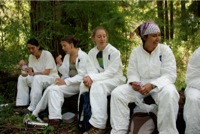
Stewardship/Ohlone Tiger Beetle monitoring internship--2 interns needed
Shift times: Our shifts run in a 6 hour block, once per weekTuesdays 9:30 am-3:30 pmAssist with a wide variety of stewardship tasks on the Campus Natural Reserve and surrounding campus natural lands. Stewardship projects include the following: (1) woody plant removal from coastal prairie, (2) coastal prairie monitoring (3) management of invasive plant species, including surveillance, monitoring, identification, mapping, and removal, (4) trail maintenance and erosion control on reserve trails, (5) assisting with trail closures, (6) cleaning out abandoned camps and other forest and meadow trash piles, and (7) installing signs and fences. We will also begin monitoring federally endangered Ohlone tiger beetle adults in coastal prairie habitats beginning in late January. This work involves counting adult beetles along road and trail transects--not rocket science, but part of an important regional effort to conserve this endangered species. Throughout the course of the Quarter interns will visit diverse habitats in various portions of the Campus Natural Reserve, and will pick up some natural history of various plants and animals along the way. Internships require punctuality, a strong work ethic, and the ability to work outside in all weather conditions in rough, uneven terrain and in dense thickets. Interns will gain experience with a wide variety of skills needed to manage and maintain a natural reserve that receives significant human use. Training on the safe use of hand tools will be provided. Interns should wear closed-toed shoes, long pants, and should have a long-sleeved upper layer they can put on when we work in dense vegetation. Interns should also bring lunch and enough water for the day (1 to 2 liters). Alex Jones, UCSC Campus Natural Reserve Manager, will communicate each week's meeting location via email or text, so it is extremely important to be diligent with checking your UCSC email account and phone
Campus Natural Reserve rapid assessment--2-4 interns needed
Shift times: Following training you will be able to determine your own schedule in conjunction with other interns or IDEASS studentsWork with the Campus Natural Reserve manager and students from IDEASS to survey the newly expanded Campus Natural Reserve. The rapid assessment will include navigating on and off-trail and using a mobile data collection platform (you know, an offline app, not some kind of cool hovering and scooting platform that you'd sit on and cruise through the forest whilst collecting data) to record photographs, a variety of human impacts, rare species, invasive species, and more, within 50m2 grid cells across the reserve. Field work will be done in groups of two or more students. This will be an excellent way to get to know campus natural lands while contributing valuable information that will inform reserve management.
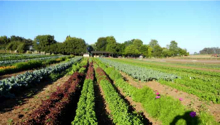
Farm Internship
Listing also found in Agroecology and Plants and Summer tabs.
Contact: Damian Parr, dmparr@ucsc.edu
The UCSC Center for Agroecology is offering a lower division production internship focused on field-scale harvesting and orchard care, as well as general market garden-scale cover cropping, bed tillage, composting, and propagation. The production sites include the Chadwick Garden, Farm Garden and the Field. Internship activities with the Basic Needs and Cowell Coffee Shop include produce distribution through pop-up and pantries, and meal preparation, cooking and serving. The internship will include a cohort of approximately 15 interns, working as a team. Each year, a number of paid student staff positions are available to graduates of our internship program.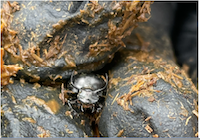
Contact: Suzanne Lipton, suzannelipton@ucsc.edu
Are you interested in learning about soil arthropods in agroecosystems and
gaining experience in a lab? Internship positions are open to help with a project
examining how management practices and landscape cover influence dung
beetle abundance and diversity in the Central Coast region. Following up on
data collected in the field in the spring and summer, interns will learn to use a
Leica microscope camera to take dung beetle images for beetle identification,
and will help collect and collate metadata for the project. No prior experience is
required, but an interest in arthropods, agroecology, and/or learning about
experimental data analysis is a plus. Reach out to Suzanne Lipton at
suzannelipton@ucsc.edu to apply for 2 or 5 credit internships.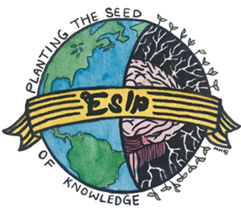
Education for Sustainable Living Program
Listing also found in the Environmental Education tab.Contact: Kali Lucas & the ESLP Team, eslp@ucsc.eduThe Education for Sustainable Living Program (ESLP) is a student-led organization committed to empowering students to take action in the climate crisis. ESLP works to foster co-intentional learning between students, while creating a culture where students can take action. We are seeking volunteers to join us in creating environmental education opportunities for fellow students on campus.No internships are being offered at this time. Anyone interested in volunteering with ESLP is welcome and encouraged to reach out to eslp@ucsc.edu.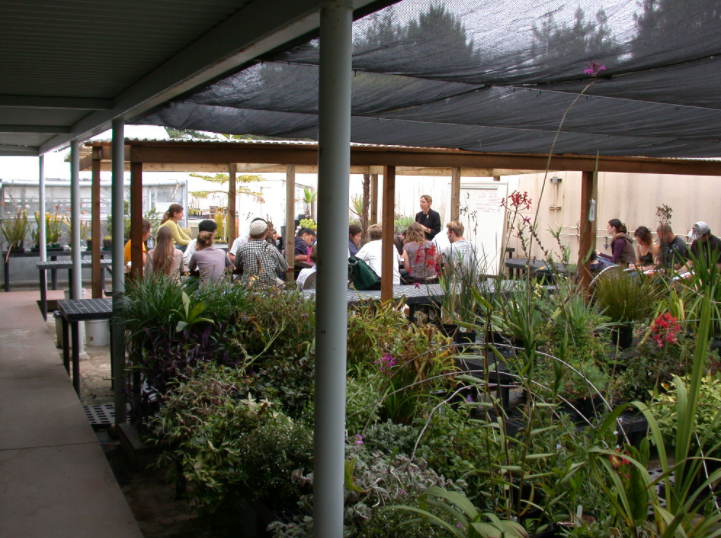
Listing also found under Conservation
Contact: Sylvie Childress sylviechildress@ucsc.edu
The UCSC Greenhouses grow plants for research, course instruction, and ecological restoration and
conservation. This internship focuses on ex-situ rare plant conservation. The work will mostly take place in the UCSC Greenhouses, with at least one off-site field work day. Students participating in this internship are eligible for a stipend.
Interns will assist with:
- Growing plants for seed increase of local CRPR (California Rare Plant Ranked) species, with end
goal of producing seeds for long term storage in a seed bank
- Create mounted herbarium specimens
- Growing and outplanting individuals of the rare Santa Cruz Tarplant (Holocarpha macradenia)
- Recording information related to plant growth
- Gathering and analyzing data from seed germination experiments
- Drafting Propagation Protocol documents to contribute to a national database of plant propagation
methods
Learning objectives include:
- Learn about the conservation challenges facing local rare plants
- Understanding the seed ecology of plants in a variety of habitats
- Gain familiarity with standard and creative methods of breaking seed dormancy in California native
plants
- Acquire horticultural skills in cultivating plants from seed to seed-setStrong interest in plant conservation is the only requirement! Some background in plant biology and statistics
is strongly preferred (not required). If interested, please email Sylvie Childress (sylviechildress@ucsc.edu)
and describe any relevant coursework, personal experience, and interest in these areas.We will be accepting interns as of Winter 2024/Spring 2024

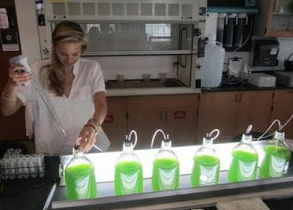
Ecological Aquaculture Research Internship
Contact: Pallab Sarker, psarker@ucsc.edu
Interns will assist the team to set-up and carry out experiments to assess suitability of novel feed ingredients for potential inclusion into diets (nutritionally complete pellets) for farmed fish. We are also interested to use water from our recirculating aquaculture systems to provide nutrient-beneficial water for crop irrigation on the CASFS farm.
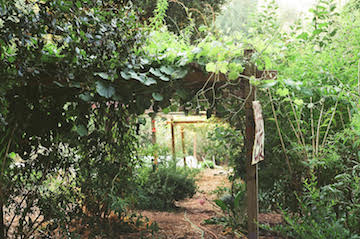
Kresge Garden Internship
Listing also found under Agroecology & Plants
Available for Spring 2023!
Contact:garden-coop-core@
googlegroups.com and/or Natasha Janowski, njanowsk@ucsc.edu Ever wondered why 100% sustainable food systems are well established and practiced by indigenous communities worldwide, taught in classes, and desired by the majority of people, yet they are hardly ever implemented at large scale in the U.S? Us too!The Kresge Garden co-op, a non-hierarchical organization run by queer student workers, is offering a 2-unit internship focused on how we can build sustainable food systems outside of the limitations of a capitalist market. We are the oldest student run garden on campus as well as the only campus garden that is run by a co-op. The 2-unit internship will cover topics such as sustainable gardening practices, consensus based community decision making, reciprocal relationships with land, herbalism, food justice, and history of labor organizing in our area.Interns are required to complete 60 hours of work over the quarter, which will mostly be in the garden but could also be in helping to manage the social media, reading, or discussing topics together, etc. This does not include journal writing, the final paper, attending meetings, or doing optional readings. There is a weekly journal entry (about 500 words) and a final paper (about 1500 words of reflection) regarding the internship. Fulfills PR-S General Education Requirement. Katie Monsen, kmonsen@ucsc.edu, is available as a faculty sponsor for this Internship in Spring 2023. Taking the internship for credit/grade is not required. Check out their Instagram @kresgegarden for updates.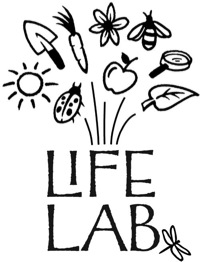
School Garden Internships
Contact: Cara-Alexandra Sundell, cara@lifelab.org (831-459-4035)
Get your hands in the dirt and participate in our Gardening & Garden Crew Internships!!
Grow your gardening skills, learn the basics of garden design and elements of a child-friendly
garden, and learn how we grow the park to support our seasonal field trips, workshops, school & summer programs.
Interns meet at the Life Lab Garden on the UCSC campus
2 or 5 credits are available through the Environmental Studies Dept.
All Genders, LGBTQ+, Latina/o/x/e, and BIPOC are encouraged to sign up.Spring Environmental Education Internships with Life Lab
We taste veggies & fruit, discuss where our food comes from,
and explore the garden with kids!!! Interns receive training in: Garden-based education,
working with children in the outdoors, group management tools, garden development projects,
games, activities, and much more! Interns teach and work on garden projects all quarter.Offerings for Spring 2024 Quarter: Blooming Classroom
●MONDAYS 12:30pm- 6:00pm: Afterschool Super Cycles field trip w/ 3rd& 4th graders at the Blooming Classroom near Watsonville
●TUESDAYS 9am to 2pm: Science Exploration field trips for 1st & 2nd graders at the Garden Classroom on the UCSC farm
●TUESDAYS 12:30pm- 6:00pm: Afterschool Super Cycles field trip w/ 3rd& 4th graders at the Blooming Classroom near Watsonville
●THURSDAYs 9am to 2pm: Science Exploration field trips for 1st & 2nd graders at the Garden Classroom on the UCSC farm
●FRIDAYS 11am to 4:30pm: Afterschool Super Cycles field trip w/ 3rd& 4th graders at the Blooming Classroom near WatsonvilleGardening at the Garden Classroom on the UCSC Farm
● MONDAYS from 9am to 2pm located on campus
Garden Crew at school gardens in Santa Cruz and Live Oak School Districts as well as the Garden Classroom on the UCSC Farm
●TUESDAYS AND THURSDAYS from 3-6pm
Interns meet at the Life Lab Garden, on the UCSC campus
Spanish speaking skills desired, but not required!
Enthusiasm for working with kids is a must!
Norris Center Internships
Listing also found in Environmental Education tab.
The Norris Center welcomes students who are interested in natural history and want to get hands-on experience with a natural history collection in a meaningful way. 2-unit and 5-unit internships are available to students interested in creating their own projects or continuing long term projects. Past projects have included taxidermy, creation of exhibits, cataloging various collections, creating online natural history resources, teaching classes, leading hikes for campus groups, and writing natural history based books/curriculum. We have a diverse collection including an herbarium, and collections of birds, herps, fish, skulls, mammals, insects, etc. at your disposal to work with. Successful interns will have an interest in natural history and enthusiasm for learning.
Below is a list of the winter 2023 internships:- Herbarium Internship: Learn about plants in the museum
- Taxidermy Internship: Learn about how to prepare specimens for the museum
- Natural History Museum Projects with Entomological Collections: Learn the foundations of professional insect curation using the Randall Morgan Hymenoptera (bees, ants, wasps) collection.
- Mammal Projects: Interns will help with skeletonization at Mt. Lion to prepare it for the museum.
- Senior Internship/Senior Thesis
After taking a look at the internship page and if you identify an internship that you are interested in for the winter quarter- send an email to gimhurta@ucsc.edu (first) along with a screenshot of your weekly schedule.Norris Center Taxidermy Internship
Contact: Chris Lay, cml@ucsc.edu, (831) 459-4763
The taxidermy intern will be crucial in helping add to, and maintain, our current collections. The intern will be trained in how to skin, dry, document and properly preserve bird, and possibly mammal, specimens over the course of the quarter. According to a detailed protocol, the intern will work to create scientific specimens from previously collected animals to add to the museum’s collections.
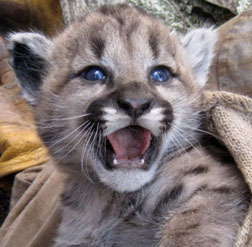
Puma Project
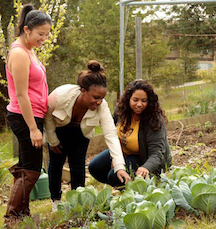
RCC Garden Internship
Listing also found in the Agroecology and Plants tab.
Contact: c8garden@ucsc.edu
The Rachel Carson College Garden, a program within the Food Systems Working Group, provides 2 and 5 unit internship opportunities centered around basic garden care and stewardship--from seed to fruit. This internship will also focus on the intersections of society, green spaces and food justice through engaging with CRSN 90 and other hands on experience. Interested students will need to complete a casual interview before participating. Looking for students to intern for 2 quarters to develop experience with multiple seasons. Paid student staff positions will be available for students who previously committed to 2 quarters at the garden.
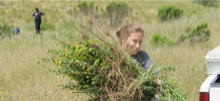
Site Stewardship
Contact: Bill Reid, billreid@ucsc.edu, (831)459-4680
The Site Stewardship Program organizes a team of interns and volunteers to take on ecological restoration and guardianship for sensitive natural areas within the UCSC campus. The program seeks to alleviate the impact that university growth is having on the landscape of the campus. The result of past natural resource extraction and university build-out has caused habitat destruction, invasion of non-native species, and soil erosion. Please visit their website for more information!

Sprout Up Internship Opportunities
Listing also found on Environmental Education tab.
Contact: Kendall Post, kendall@sproutup.org
Sprout Up is a project of Environmental Volunteers founded in 2009 by undergraduates to instill a love for learning and an ethic of sustainability in our youth. Our environmental science & sustainability program links teams of college-student instructors with 1st and 2nd grade classrooms for weekly activities, experiments, and discussions that explore the relationship between humans and the natural world. We have also provided leadership development and training to over 3,500 college student volunteers.
Sprout Up is excited to partner with motivated college students with a passion for equity and environmental change to work on creating new Sprout Up chapters at their colleges and universities. Through your work with Sprout Up you'll develop critical leadership, education, and environmental skills, make a difference in your community, and empower the next generation of environmental stewards!
Stevenson Garden Internship
Listing also found in the Agroecology and Plants tab.
Contact: Anne Friewald, annefreiwald@ucsc.edu
The Stevenson Garden aims to create a safe space for all people to explore, grow, and learn as well as to educate our community about the role food systems play into sustainability, food justice, and nutrition.
The role of the intern will have two parts: 1. to assist the garden crew in general maintenance of the garden on a weekly basis: attend weekly workday hours, do independent garden shifts.
2. to independently facilitate a garden project that a) enhances the garden and
b) educates community members on social justice and sustainability concepts; e.g. plant a strawberry bed & do a workshop on environmental justice issues in the strawberry industry.
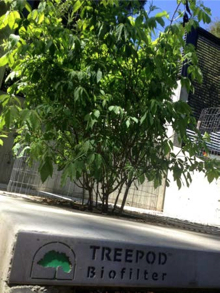
UCSC Storm Water Management Program
Contact: Storm Water Manager cleanwater@ucsc.edu; (831)459-4520
Any students interested in environmental issues and would like to get involved on campus are encouraged to apply! Help UCSC manage the quality of campus storm water! Looking for: Writers, artists, web gurus, marketing specialists, photographers, students interested in environmental issues, & people able to network easily to work on storm water issues to enhance the overall campus environment!
Please visit their website for more information.
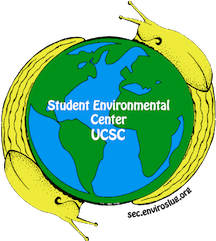
Fiscal Position
Contact: Liane Bauer, sec-group@ucsc.edu
The Student Environmental Center (SEC) is a student-run, student lead activist organization on campus dedicated to institutionalizing sustainability and environmental justice here at UCSC through projects and events that educate and empower students. Interning and working with the SEC is an excellent opportunity to gain hands-on skills like leadership, facilitation, project planning, critical thinking, etc., which employers will be looking for after graduation. Interns will also be able to create meaningful and lasting change on campus all while learning outside of the lecture hall and earning college credits! Expected duties for the fiscal interns include keeping track of all financial transactions, helping others navigate the fiscal suystem of UCSC, and ensuring funds are accessible for events.Blueprint Organizer
Contact: Liane Bauer, sec-group@ucsc.edu
Expected duties of the Blueprint Organizer include coordinating events and projects, tracking finances for the blueprint budget, and being an advocate for environmental justice.
Personnel Position
Contact: Liane Bauer, sec-group@ucsc.edu
Expected duties of the personnel intern include handling logistics such as collecting documentation of time sheets and goals from students, sheduling meetings for large group discussions, evaluating peers and keeping track of deadlines, sending out reminders of peers for documents, communication with sister orgs such as ESLP and CSC, and planning quarterly retreats.
Media and Outreach Intern
Contact: Liane Bauer, sec-group@ucsc.edu
Expected duties of the media and outreach intern include advertising events and projects, working with outisde organizations to build coalition, and educating and empowering students through social media.

Contact: Derek Martin, deemarti@ucsc.edu
The Sustainability Office is often looking for talented individuals with a passion for people and the environment to join one of our teams: Green Office Certification Program, Green Labs Certification Program, Carbon Neutrality Fellows, Student Sustainability Advisors, Fair Trade, Carbon Fund, or the Sustainability and Environmental Justice Ambassadors (SEJA). If you are interested in gaining professional experience in a fun and rewarding environment, view our current job openings on our website!
Offering paid positions in our student teams, which are listed in the description with the link to the hiring page which lists the positions we have open at any given time.
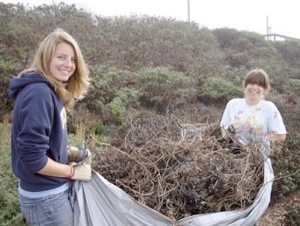
Younger Lagoon Reserve Habitat Resoration Field Crew
Listing also found in Conservation tab.
This is located at the UCSC Coastal Campus
Contact: Eric Medina eimedina@ucsc.edu 707-237-1245 (cell)
The UCSC Natural Reserves Office manages five natural reserves that are set aside for teaching, research and public education. We sponsor interns every quarter, including summer, to work at Younger Lagoon Reserve on our Habitat Restoration Field Crew. Student interns work outside among herons, hawks, and coyotes and pull invasive weeds, collect native seeds, propagate and plant native seedlings, maintain existing restoration sites, cut back trails, and conduct ecological monitoring throughout the year.
Cowell Coffee Shop
UC Climate Action (SB 1383)
EARTH (Ecology of Ants Restoring Tropical Habitats) Internship
Arboretum
Botswana Carnivore Latrine Project
Campus Natural Reserve
Center for Agroecology (CfA)
Dung Beetle Internship
Education for Sustainable Living Program
Greenhouse (UCSC)
Kapucinski-Sarker Lab
Kresge Garden Cooperative
Life Lab
Norris Center for Natural History
Puma Project
Rachel Carson College Garden
Site Stewardship
Sprout Up
Stevenson Garden
Storm Water Management Program
Student Environmental Center
UCSC Sustainability Office
Younger Lagoon Reserve Habitat Resoration Field Crew
Village Garden Cooperative Internship
Listing can also be found under the Environmental Education, Agroecology and Plants , and the Research tab.
Contact: Cate Luna and Kayden Bryant
Email: sssinfo-group@ucsc.edu , or village-gardens-leadership-group@ucsc.edu
Address: 7044 Village Rd, Santa Cruz, CA
Available for Fall, Winter, Spring
revitalizing the Village B Quad garden, formerly home to PICA, or the Program in
Community Agroecology. The goal with this internship is to build it into a student group
who can build on the legacy of PICA in taking care of the Village Gardens and creating a
community space.
- Propagating seeds, creating crop plans, seed saving
- Pruning perennial plants and taking cuttings from perennial plants
- Planting out garden beds with edible crops
- Harvesting food crops and distributing food to students
- Garden-related building (building pest-proof covers for raised beds)
- Cultivating native ecosystems in garden settings
- Collaborating with Village Res life to host community events for Village residents
- Collaborating with researchers using the space to collect data on how much food that water from rain tanks can produce
- Collaborating with researchers building fog catchers that rest on top of garden beds and capture water
